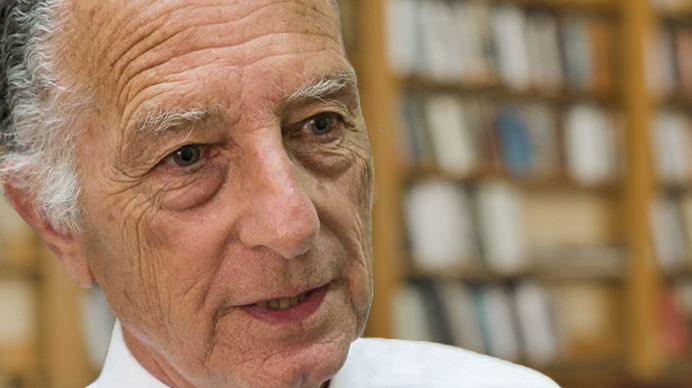
"To err is in our nature, and although medical mistakes usually occur due to failures in the hospital system, there is also a human factor.” This is a statement by José María Ceriani Cernadas, a senior neonatologist and respected coordinator of the patient safety committee at the Hospital Italiano de Buenos Aires (Argentina), which the Practicum Institute has interviewed. In his opinion, traditional models of medical education reinforce the concept of infallibility, which is when we lose an opportunity to cultivate a critical attitude. "Denial tarnishes the analysis of its causes and prevention."
Buenos Aires - March 12, 2019. The predominant culture in medical practice is to hide errors. It was not until the end of the twentieth century that an ethic was developed for learning from the profession’s mistakes. The philosopher Karl Popper, for the British Medical Journal in 1983, the Harvard professor Lucian Leape, in a seminal study in 1990, and the US Institute of Medicine, with the famous “To err is human” in 1999, have laid the foundation of a growing interest in a medicine focused on the patient. Today, the expert in patient safety José María Ceriani Cernadas talks about "a matter of enormous magnitude, portrayed as the third cause of morbidity and mortality in the United States, behind only to cardiovascular disorders and cancer."
An honorary head of the Neonatology Service and Department of Pediatrics of the Hospital Italiano de Buenos Aires and editor-in-chief of the Archivos Argentinos de Pediatría, Dr Ceriani is vehement: "In the US, somewhat more than 300,000 patients die mainly due to errors made by physicians and, in a smaller proportion, by other healthcare professionals.” In a 2007 article for the aforementioned journal, the expert referred to a New York study from the 1980s that included all hospitalizations during a year and found that 4% suffered iatrogenic injury, which was fatal in 14% of them. "Translated to the entire American population, this amounts to about 120,000 deaths due to iatrogenesis, which is comparable to three full Jumbos crashing every two days."
A mandatory question: what factors weigh on this situation? "I would say that there is no control in most hospitals, which is why failures in the hospital system are the most frequent cause of errors.” Moreover, "in Latin America, the first patient safety committee (CSP) was created by our Department of Pediatrics in 2001." In recent years, these committees, which are common in developed countries, are being extended to other hospitals in Buenos Aires and some provinces, but "in our country, there is still a long way to go for this to occur in all centers, or at least in the most important ones," he clarifies.
The Argentine also regrets that in current medicine, and especially among younger professionals, persists an idea of considering knowledge as an end in itself." Determining factors added to that include loss of attention, stress, depressive states, cognitive issues, and, ultimately, the human factor. In another article for the Archivos Argentinos de Pediatría in 2011, Dr Ceriani emphasized, "errors rarely occur due to a single error and are usually the sum of latent errors (by the system) and active errors (by human beings).” Errors – the expert maintained in the article – can occur at three levels and, with more expertise, the focus moves from the level of knowledge and norms to that of skills.
Training and environment
What happens is that "human beings prefer the pattern of recognizing to the one of calculating, which is the reason why they are strongly biased to look for a pre-packaged solution." They opt, for example, for a response based on a norm rather than facing a conscious analytical process. On the other hand, strategies aimed at preventing an individual from erring tend to fail because they do not take into account that, irretrievably, the individual will commit an error. "Even the one who knows the most and the one who is very competent make mistakes, which is why reasoning is key.” It is also a state of permanent alert, since "in medicine – and this has already been said by Einstein – knowledge is based on the elimination of results or previous knowledge, once it is detected that they are not correct.”
Therefore, "we cannot change the human condition, but we can change the conditions in which human beings work," defended the current publication council director of the Argentine Society of Pediatrics in his 2007 article. Going back to the previous aviation example, this idea is linked to the institutionalization of security and the standardization of protocols in the healthcare field. The constant training and application of cognitive psychology principles allow us to glimpse a less auguring future. "The change must begin in medical schools, continue during residence, and go through the training years," concludes Dr Ceriani.
Our personalized help center enables you to obtain technical support and help for navigating through the site and using the program.